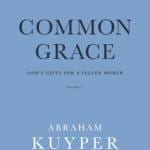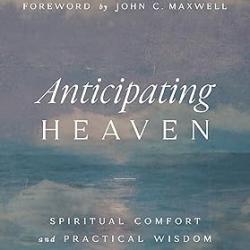I had originally intended the first review of 2020 to be a companion piece to last week’s “Best Books of the 2010s” post, except listing the worst books I read in the last decade (maybe even called something like “Worst Books of the 2010s” or some such). For better or worse–mostly better–I don’t read many terrible books. And frankly, a ‘worst books’ blog post seems a bit mean. And since 90% of the time I don’t care at all about being mean, it must be really mean. So despite there being a decent enough number of potential books for the list, I won’t be writing that.
(And for the record, I rarely review self-published books these days—who’s got the time for that? So it might be that conservatives should support Trump’s impeachment or oppose Trump’s impeachment or support free market economics or what-have-you, but I just don’t have the time to read and comment on the quality of your book. Which means that it might have made my best-of the decade list, but it might have also made the worst of the decade list, had I written one…)
So, instead of the worst-of list that I had intended to write, here are some thoughts on the works of John Flavel.
It’s taken a few years, but I’ve finally worked my way through the Banner of Truth set of the Works of John Flavel. Unlike the Church Fathers, I highly, highly recommend this project. To be sure, some of his writings are better than others. His Pneumatologia, unhelpfully split between volumes 2 and 3 of the set, borders on Gnostic at times (though the fact that it’s his treatise on the soul might account for that apparent inclination–were it a book on the body it might have had a different tenor. It might also have been called “somatologia” or some such. I don’t know, I don’t have a whole lot of Greek). And some of the readings in these volumes are going to be of less interest to the non-scholarly readers out there.
But even with these exceptions, John Flavel is almost always worth your time. The more I think about it, the more I think he might be my favorite Puritan. In addition to being a clear and careful writer, and in addition to having a typically Puritan thoughtfulness and love for Scripture, he has a delightful sense of humor that breaks through every once in a while. Most importantly Flavel gives us a wonderful combination of robust Biblical theology and heartfelt devotion to the crucified and risen Savior.
I know that a six volume set can be overwhelming for someone taking a first look at Flavel (to say nothing of someone who’s never dipped their toes into the Puritans before). So to help you out, here are a few place I’d recommend starting (some of these are available in other formats, and I think all of them are probably available online for free somewhere–they’re certainly in the public domain by this point):
- The Mystery of Providence: This is not my favorite of Flavel’s works, but I understand it’s generally considered his best, and is certainly an accessible introduction to his writing style and his thought. How does God’s providence work in our lives? How does His Sovereign will affect our thoughts, actions, and environment? Pick up this book for a wonderful reflection on these and other topics.
- All Things Made New: How should we live in the light of the Gospel and the second coming? What should drive us as believers in our daily lives? Flavel works through these and other topics in this short reflection.
- If you’ve made it through the first two books on this list, you’re probably ready for the big times–and I cannot stress enough that the place to start is Volume 5 of the Works of Flavel. This contains his absolute best works, and really is the single volume that everyone should read. Honestly, the short book husbandry Spiritualized: The Heavenly Use of Earthly Things alone is worth the cost. But the other works in the volume are also Flavel at his best. “A Token For Mourners”, preached to help those struggling with grief, ought to be read by anyone who is, well, struggling with grief. Or by anyone who is going to counsel those struggling with grief. “A Saint Indeed: or the Great Work of a Christian Explained and Applied” and “The Touchstone of Sincerity, or the Signs of Grace and the Symptoms of Hypocrisy” are also superlative. Really, Navigation Spiritualized is the weak link in the volume, and that’s only by comparison with the other works. It is still an excellent work in its own right.
To talk up Volume 5 isn’t to say the other volumes aren’t also worthwhile. Each has it’s own strengths and weaknesses, but all of them are worth your time and attention. As with any Puritan, you shouldn’t plan to plow through these. Instead, you should expect to stroll slowly and thoughtfully through these works. But you should also expect the stroll to be a blessing.
And just to end with a sample, from Volume 3 (pgs 378-379):
“The unchangeable God hath secured his loving kindness t o his people, by promise, under all the trials and smarting rods of affliction with which he chastens them in this world; he hath reserved to himself the liberty of afflicting them, but bound himself by promise never to remove his favor from them….
As it is in nature, so in providence, you have one day fair, halcyon, and bright, another dark and full of storms; one season hot, another cold; but all these serve to one and the same end and design to make the earth fruitful; and the end of all providences is to make you holy and happy. That is a sweet promise.”
Dr. Coyle Neal is co-host of the City of Man Podcast and an Associate Professor of Political Science at Southwest Baptist University in Bolivar, MO












